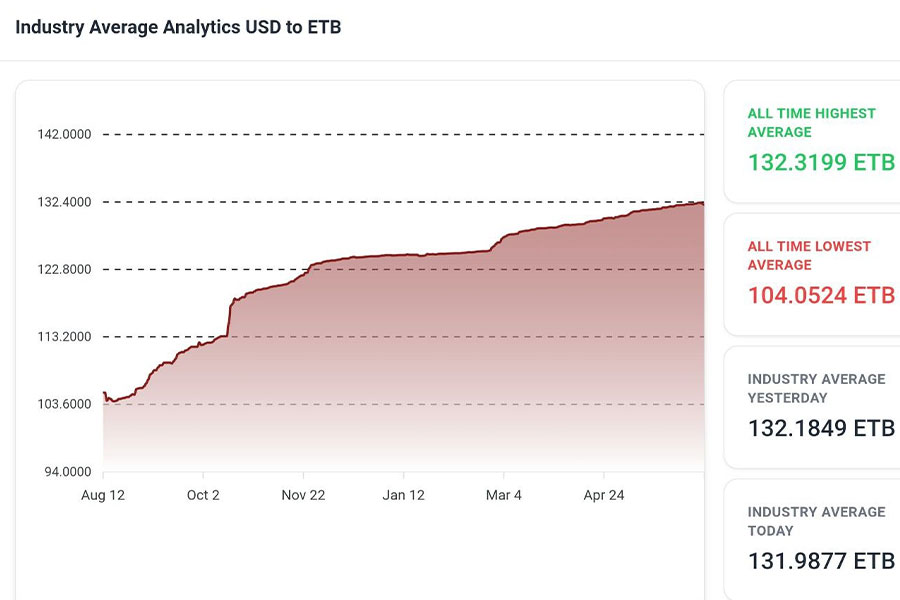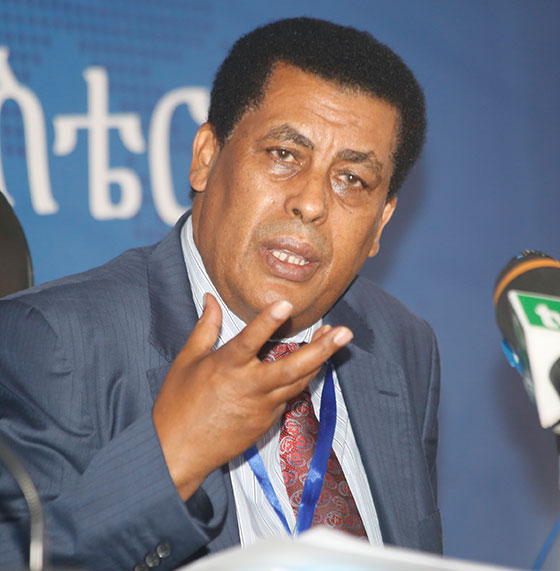
Aug 3 , 2024
By Hintsa Andebrhan
The central tenets of a microeconomic structure are resource mobilisation and productivity enhancement. For governments aspiring to accelerate their country's economic growth and improve socio-economic conditions, crafting assertive policies that leverage human capital and natural resources is crucial. Importantly, achieving these objectives does not demand the support of international financial institutions like the International Monetary Fund (IMF) or the World Bank.
Nevertheless, establishing economic relationships with entities such as the IMF or the World Bank should not be discounted entirely. The crux lies in ensuring that such engagements do not compromise policy sovereignty, social protections, or national security.
Monetary sovereignty should anchor any country's economic stability. That is why countries implement robust policies to ensure their currencies remain resilient against others. Every country should have the right to defend its policy autonomy, crafting inward-focused strategies that utilise its human capital and natural resources. These strategies can help regulate import trade and substitute domestic production for imported goods.
Prime Minister Abiy Ahmed (PhD) should prioritise economic recovery initiatives that could leverage Ethiopia's rich natural endowments and human capital to regenerate the economy and create jobs. With the advent of a series of reform measures, his Administration appears to have stumbled in rolling out a viable economic policy and ensuring Ethiopia's economic security. Its macroeconomic advisors have not quite hit the mark. They have surrendered Ethiopia's economic sovereignty to the Bretton Woods institutions.
An economic policy focused on sovereignty contrasts with the political arm-twisting of the Western world. Yet, if political leaders are committed and determined, inward-focused policies could seamlessly integrate into a win-win political arrangement.
Several Ethiopians had known of the Administration’s negotiations with the IMF and other creditors for nearly a year. However, no one expected the government to present a deal that felt like an economic betrayal against the people and their currency sovereignty. Yet, that is precisely what unfolded.
Now, we witness the involvement of powerful countries, like the United States, in Ethiopia's economic turmoil. The U.S. Embassy in Addis Abeba recently took to social media platform X to discuss the challenges of a market-based foreign exchange regime while stressing the need to tackle macroeconomic distortions. This indicates Washington’s triumph over the shortcomings of the Abiy Administration’s politico-economic policies, almost like political satire aimed at the Ethiopian people, who currently have no other political leadership to rely on.
Conversely, the BRICS bloc is stepping up as a leader in the multipolar world, rebalancing the Western liberal order across all political and economic interests. One of the bloc's important moves has been to ditch the U.S. Dollar in the commercial systems of its member countries, marking a bold departure in its political-economic strategy. They have even announced a financial system to rival the Western SWIFT.
With Ethiopia's BRICS membership, it is baffling that the Abiy Administration continues to cling to Western rules and pressure to address its foreign exchange crisis. Instead of carving out a strong economic and political strategy to tackle broader issues and shield Ethiopia's citizens from the Bretton Woods, the Administration appears to be waiting on the sidelines. Joining a political bloc is not like signing up for a club; without a vigorous policy and a firm political posture, it only consolidates the political muscle of superpowers, making the leadership look even less relevant.
It remains to be seen how the political heavyweights within BRICS, especially China and Russia, will respond to Abiy’s blend of economic policies with liberal financial institutions. While they may not immediately cut ties with Addis Abeba, their confidence may wane.
PUBLISHED ON
Aug 03,2024 [ VOL
25 , NO
1266]


Life Matters | Sep 03,2022

Fortune News | Oct 27,2024

View From Arada | Apr 09,2023

Radar | Nov 16,2024

Fortune News | Aug 13,2022

Radar | Nov 20,2023

Fortune News | Apr 28,2024

Money Market Watch | Jun 15,2025

View From Arada | Sep 10,2022

Fortune News | Aug 21,2021

My Opinion | 131658 Views | Aug 14,2021

My Opinion | 128022 Views | Aug 21,2021

My Opinion | 125985 Views | Sep 10,2021

My Opinion | 123609 Views | Aug 07,2021

Dec 22 , 2024 . By TIZITA SHEWAFERAW
Charged with transforming colossal state-owned enterprises into modern and competitiv...

Aug 18 , 2024 . By AKSAH ITALO
Although predictable Yonas Zerihun's job in the ride-hailing service is not immune to...

Jul 28 , 2024 . By TIZITA SHEWAFERAW
Unhabitual, perhaps too many, Samuel Gebreyohannes, 38, used to occasionally enjoy a couple of beers at breakfast. However, he recently swit...

Jul 13 , 2024 . By AKSAH ITALO
Investors who rely on tractors, trucks, and field vehicles for commuting, transporting commodities, and f...

Jun 28 , 2025
Meseret Damtie, the assertive auditor general, has never been shy about naming names...

Jun 21 , 2025
A well-worn adage says, “Budget is not destiny, but it is direction.” Examining t...

Jun 14 , 2025
Yet again, the Horn of Africa is bracing for trouble. A region already frayed by wars...

Jun 7 , 2025
Few promises shine brighter in Addis Abeba than the pledge of a roof for every family...

Jun 29 , 2025
Addis Abeba's first rains have coincided with a sweeping rise in private school tuition, prompting the city's education...

Jun 29 , 2025 . By BEZAWIT HULUAGER
Central Bank Governor Mamo Mihretu claimed a bold reconfiguration of monetary policy...

Jun 29 , 2025 . By BEZAWIT HULUAGER
The federal government is betting on a sweeping overhaul of the driver licensing regi...

Jun 29 , 2025 . By NAHOM AYELE
Gadaa Bank has listed 1.2 million shares on the Ethiopian Securities Exchange (ESX),...